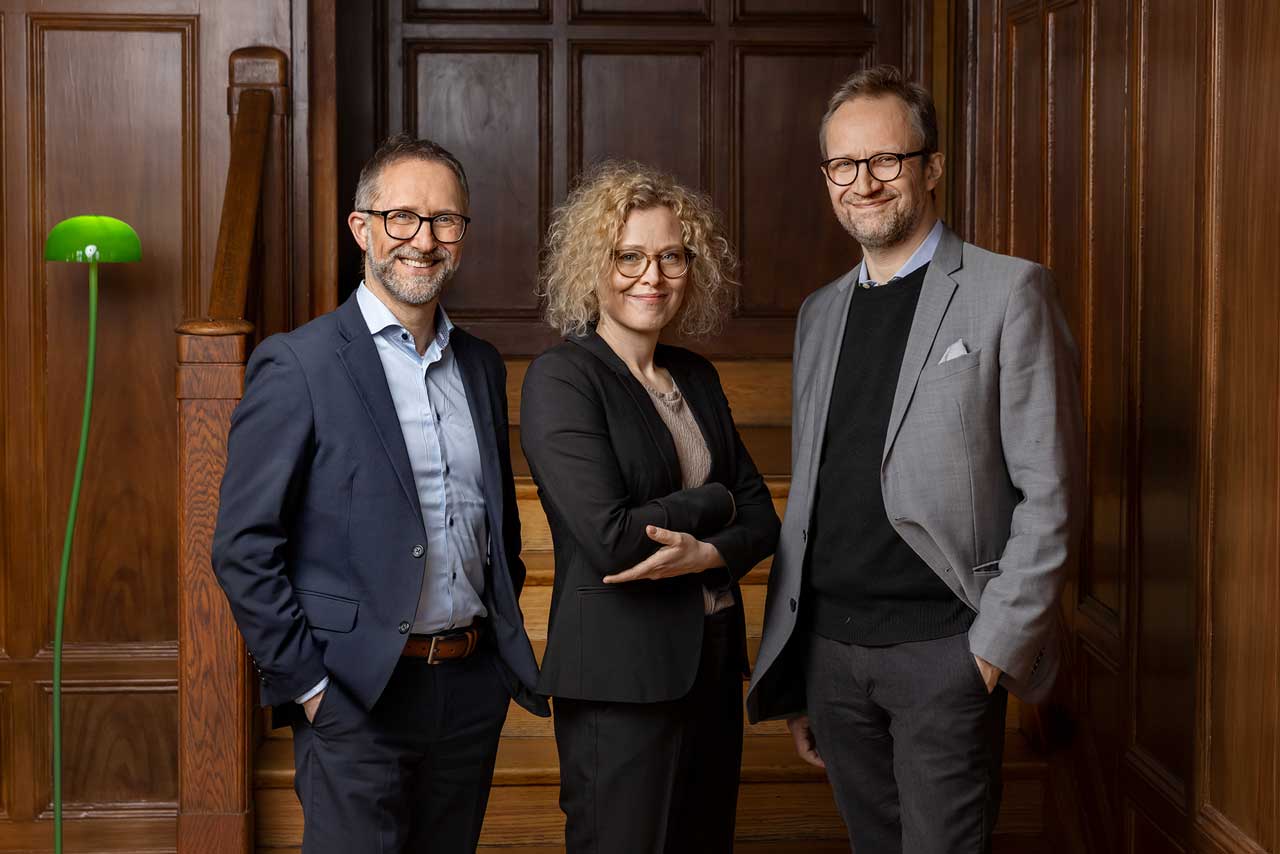Janet Ågren, Deputy Mayor of the City of Umeå, joins EIT Culture & Creativity Policy Club, along with several other representatives of creative cities across Europe. This is done with a handshake with EIT Culture & Creativity Interim CEO Bernd Fesel, at the eve of the European Union Conference on Artistic Freedom and Cultural and Creative Industries, held in Umeå as a part of the Swedish Presidency of the Council of the European Union.
EIT Culture & Creativity, is the ninth Knowledge Innovation Community (KIC) supported by the European Institute of Innovation and Technology (EIT), a body of the European Union. The Policy Club is a strategic activity of the EIT Culture & Creativity to create innovative policies, frameworks and incentives and regulations regimes. It aims to embed understanding of the potential contributions of the Cultural and Creative Sectors and Industries’ (CCSI) across all policy domains to overcome the gap where the CCSI falls between several stools: Too business focused for cultural policy makers, too culturally focused for business policy makers, and not seen as relevant enough in helping address climate adaptation, social cohesion or innovation.
For decades, Umeå has had a vibrant scene for culture and creativity, from hard core punk to a school of design ranked as the world’s best design education. Situated far from the big metropolises of Europe, Umeå has still managed to make waves, such as being selected the European Capital of Culture 2014.

“It comes down to brave political decisions. Umeå has had politicians that has been convinced of the need for cultural infrastructure – opera, arts, museums, music and design – if Umeå was to become a creative and exciting city where people wanted to live. For a long time, Umeå has invested heavily in culture and creativity, and still is the city in Sweden investing most per capita on culture. And it has paid off, in engaged and value-driven citizens, pushing the agenda for local democracy, climate and social sustainability.”
Janet Ågren, Deputy Mayor of the City of Umeå
“Umeå is a terrific example of how bringing culture and creativity as integral part of municipal policymaking strengthens social cohesion and sustainability. We are in awe of their conviction and consistency, and the results they have achieved. It is an honour to welcome Umea into the EIT Culture & Creativity family and Janet Ågren as an ambassador for our Policy Club Initiative.”
Bernd Fesel, interim CEO of EIT Culture & Creativity
The EIT Culture & Creativity Policy Club will officially be launched at the Creative Bureaucracy Festival Berlin in June 2023. An open call for expressions of interest will be published then.


About the City of Umeå
Umeå has a long history of exciting cultural life, was named European Capital of Culture in 2014 and today offers everything from classical opera to award-winning hip hop, Sweden’s first museum of women’s history, literature festival, film festival, jazz festival and one of the world’s most acclaimed image museums. In addition, Umeå is a real sports city, which was named Sweden’s Sports City in both 2018 and 2020 thanks to both its elite and broad-based sports.
There is also a will and desire to create that resonates in the big world in the form of innovations, design, research. With Norrland University Hospital, two universities and the world’s best design college, Umeå continues to attract curious and creative people from all over the world. Of Umeå’s 130,000 inhabitants are about. 35,000 students.
About EIT Culture & Creativity
EIT Culture & Creativity is the ninth Innovation Community by the European Institute of Innovation and Technology (EIT), a body of the European Union. It is designed to strengthen and transform Europe’s Cultural and Creative Sectors and Industries (CCSI) by connecting creatives and organisations to Europe’s largest innovation network. It takes a holistic and open approach to innovation – from tech to artistic driven innovations, from business to citizen driven – and reinforces the appreciation and anchoring of European values and identities. EIT Culture & Creativity will unlock latent value from a multitude of small CCSI stakeholders through technology transfer, improved cross-sectoral collaboration and their effective integration in production value networks. EIT Culture & Creativity will support technology and business innovation; artistic innovation and social innovation. It will also harness the unique position of the CCSI to facilitate the Triple Transitions in Europe – green, digital and social.
About The European Institute of Innovation and Technology (EIT)
The EIT is Europe’s largest innovation ecosystem bringing together close to 3,000 partners from top business, research and education organisations across Europe in over 80 innovation hubs. The EIT strengthens Europe’s ability to innovate by powering solutions to pressing global challenges and by nurturing entrepreneurial talent to create sustainable growth and skilled jobs in Europe. The EIT is an EU body and an integral part of Horizon Europe, the EU Framework Programme for Research and Innovation. The Institute supports dynamic pan-European partnerships, EIT Knowledge and Innovation Communities, composed of leading companies, research labs and universities each dedicated to solving a pressing global challenge, from climate change to health, to renewable energy.



